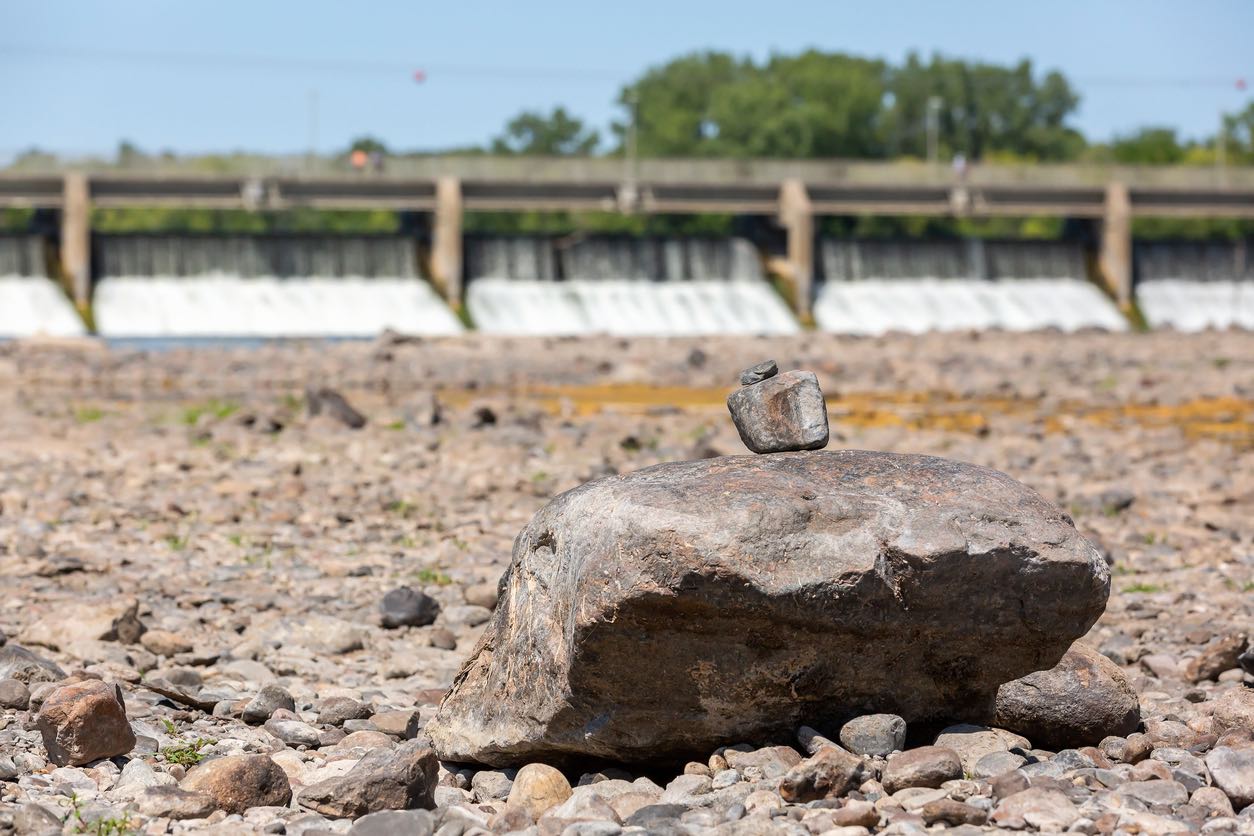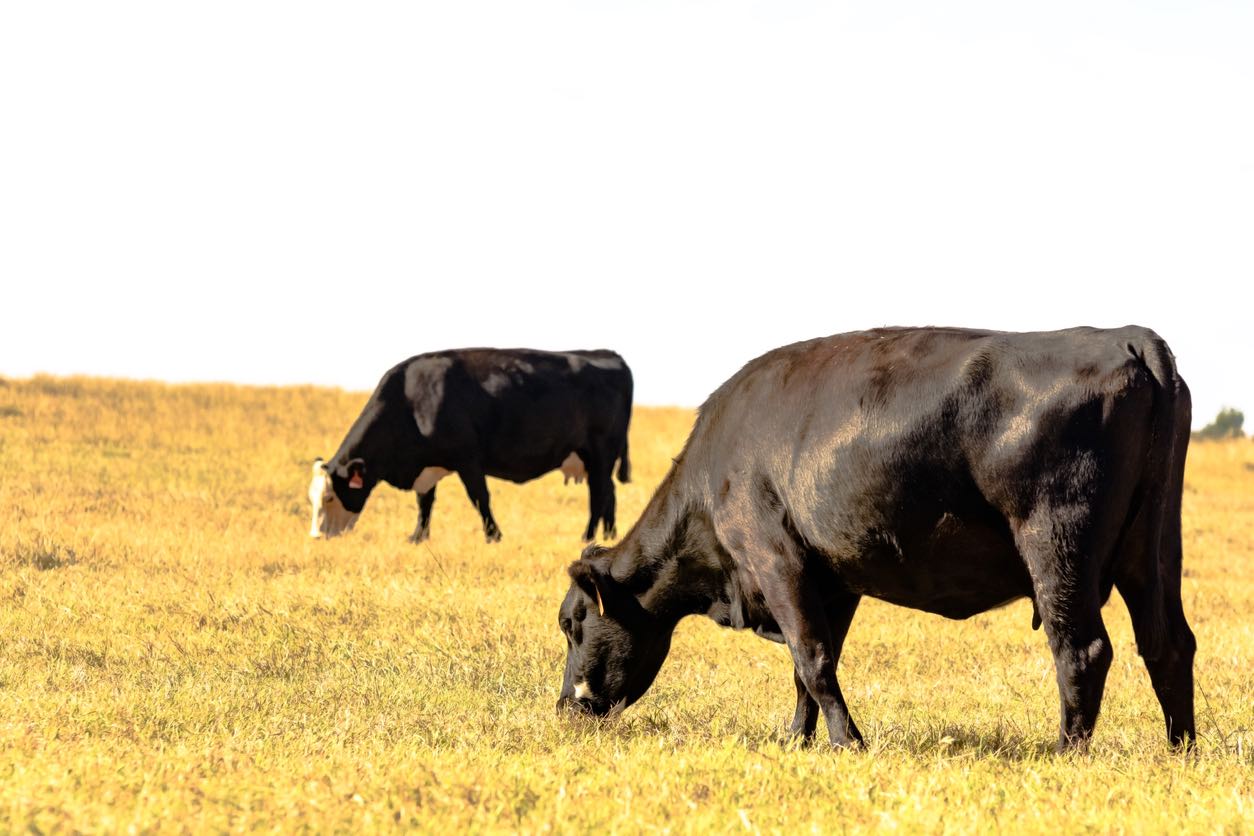The Vital Artery of U.S. Crop Commerce Under Threat: The Mississippi River, which is vital to the nation’s agricultural economy, is under threat from the drought caused by climate change. The majestic river, which forms the foundation of the country’s grain transportation system, is facing dangerously low water levels, which endanger crop movement and the livelihood of farmers who depend on its extensive network. The river’s pulse weakens close to Memphis and reaches depths never before seen—a clear sign of the environmental disaster taking place. More than just a statistic, this sharp decline in water levels serves as a wake-up call for the agriculture industry, highlighting the pressing need for adaptive strategies in the face of climate change.
A Cascade of Challenges for U.S. Grain Transportation: The consequences of the Mississippi’s diminishing waters go well beyond postponed shipments. This waterway, which is frequently referred to as the lifeblood of American grain exports, is narrowing under the strain of the environment, revealing weaknesses in the agricultural supply chain. The lack of water has resulted in a cascade of issues, including increased freight costs, disrupted delivery timetables, and a potential danger to the competitiveness of American agriculture in the international market. The formerly dependable river route is now a bottleneck, posing a challenge to farmers and agribusinesses and possibly changing trade patterns and igniting a search for resilience in the heartland’s link to international markets.

Water Levels and Saltwater Intrusion: The river’s flow and its overall function have been negatively impacted as a direct result of water levels that have dropped to an all-time record low stage close to Memphis as a result of unnaturally low water levels. The reduced water volume has caused a phenomenon known as the intrusion of saltwater, which is compounding existing problems and indicating a critical threat to the ecosystem as well as the agriculture industry, which is dependent on it.
Impacts on Barge Transportation: The stranding or delay of barges, which are the workhorses of transporting agricultural products along rivers, is resulting in monetary losses and logistical nightmares. The increasing difficulty that these vessels have in navigating the shrinking waters is reflected in the rising costs associated with transporting goods.
Comparative Analysis to Previous Years: When compared to the circumstances of the previous year, the problems that we are facing today are on par with or even more severe than those that we faced before. The repercussions, both logistical and financial, are spreading throughout the agricultural sector, which is a hint that the upcoming season may be more challenging than expected.

Surging Freight Rates: Spot rates have shown a significant increase from both the previous year and the average of the three years prior to this one, indicating that freight rates are currently on an upward trajectory. This economic indicator reflects the strain that has been placed on the river transport system as well as the increased cost pressure that has been passed on to farmers and consumers.
Impact on U.S. Grain Competitiveness: The United States’ competitive advantage in the global market for grain exports is in jeopardy. The historically low costs of transportation along the Mississippi River have served as a bulwark for American farmers in the face of competition from farmers in other countries. Now that the scales have tipped in one direction, the question that needs to be asked is whether or not American grain can maintain its market strength.

Exploring Alternative Transport Methods: Farmers are in a difficult position as a result of rising barge prices because they must decide whether to seek out new transport routes or delay shipping until conditions improve. This decision is extremely important because the profitability of agricultural businesses is highly dependent on both timing and cost-efficiency.
Shifting to Domestic Markets: There is a silver lining for some, particularly in the Upper Midwest, where the surge in the demand for sustainable fuel opens doors to domestic crushing facilities. This is a positive development for some. This alternative provides a means of adjusting one’s behavior in response to the unpredictability of the river.
The Importance of Flexibility in Transport: The current predicament highlights the necessity of adopting a more diversified strategy regarding transportation. As the river’s dependability continues to deteriorate, it demonstrates that relying on a single mode of transportation or route is a risky strategy.

Long-Term Climate Concerns: The protracted drought presents a bleak picture of the state of the environment in the years to come. The agricultural industry needs to start preparing for a world in which the mighty Mississippi may no longer be able to function as the trustworthy highway for grain that it once did because water levels are continuing to drop.
Innovation and Infrastructure Adaptation: It’s possible that the agricultural transportation industry will see innovation born out of necessity in the near future. It’s possible that novel strategies and adapted infrastructure will be necessary in order to navigate this new normal, in which the reliability of river transport is becoming a relic of the past.
The challenges that are currently being faced by the Mississippi River are more than just a seasonal obstacle; rather, they are indicative of a deeper and possibly more long-lasting change in the agricultural landscape of the United States. Farmers and the agricultural industry as a whole need to be able to adapt in order to survive low water levels, increased freight rates, and pressure from competition. These challenges call for resiliency, innovation, and a change in the way that grain from the United States is exported to the rest of the world.

In the face of these logistical adversities, Ship A Car, Inc. emerges as an example of reliability and excellence in the freight and vehicle shipping industry throughout the United States. Ship A Car, Inc. provides consistent quality of service, as evidenced by the company’s A+ rating from the Better Business Bureau (BBB) and its glowing five-star reviews across numerous credible online platforms. This helps to ensure that shipping standards are maintained at a high level, even when rivers are at low levels.
Q1: What kind of impacts has the drought had on the transportation along the Mississippi River?
A1: The drought has led to significantly lower water levels, which in turn have caused delays and operational challenges for barge transportation, impacting the flow of agricultural exports.
Q2: Given the current conditions of the Mississippi River, what other choices do farmers have when it comes to modes of transport?
A2: Farmers in the upper Midwest are increasingly looking to domestic crushing facilities, in particular for the production of sustainable fuel. Other farmers in the region may look into rail or truck transport as potential alternatives.
Q3: Why does the Mississippi River play such a significant role in the export of grain from the United States?
A3: The Mississippi River is essential because it paves the way for an efficient transportation route to the Gulf of Mexico, which is the departure point for approximately sixty percent of all grain exports from the United States.



